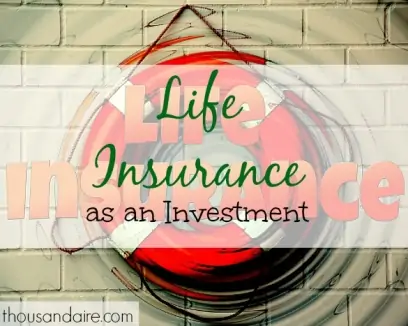When it comes to life insurance recommendations, I am pretty much in the term camp. There are several reasons for my position, the most important being that life insurance is first and foremost about protection. And since whole or universal life can literally cost over 10 times what term costs for the same coverage, not many of us can actually afford the protection we need in a permanent product.
You may have heard that it’s better to own your coverage than to rent it, and other such nonsense. I’m not buying it. The fact is, most term products provide cheaper coverage at every level – including cost of insurance. And the argument that you’ve thrown your money away if you don’t die (yes, I’ve heard it) is ridiculous. Every insurance product carries cost of insurance, which is not recovered by either the policy-holder or the beneficiary when the policy pays out or is liquidated.
With all that said, I do actually own a permanent insurance product; a VUL, or variable universal life insurance policy. If you Google VUL, you’ll find predominantly two camps: those who sell them and those who hate them. Not a good sign, generally speaking. But I don’t believe that any product is inherently bad, and the policy that I hold works very well for me.
What is a VUL?
First, though, a quick explanation. A VUL combines an insurance product with an investment. Part of the premium paid by the policy holder goes to cost of insurance, and the rest to an investment sub-account. The account can be overfunded, which means paying more than the required premium, with the extra money going into the subaccount. That money can be borrowed down the road for whatever the policy holder wants to spend it on, with any remaining balance on the loan paid off by the death benefit.

A product for a narrow market
There are many features of the VUL that make it different from other investment accounts, but I’d like to highlight two.
Earnings grow tax-deferred. A Variable Universal Life policy is an insurance contract with an investment account attached. Your premium amount will represent your minimum payment every month, but you can and should contribute more in this situation. Overfunding a VUL allows you to invest the amount of the overage and take advantage of tax-deferred earnings. The opportunity is not limitless – there is a point at which you will be penalized for investing too much at once – but there is still a fair amount of wiggle room. The cash value of your policy – or the amount in your investment account – is available for you to borrow without penalty, since any interest is paid back to you.
Benefits are paid out tax-free. Life insurance benefits pass straight to the beneficiary without being taxed or going through probate. If you’re overfunding a VUL, for example, all the assets held in your VUL – the death benefit amount plus the amount held in the investment account – will pass straight to your beneficiaries tax-free. This makes VULs a potentially excellent tool for distributing wealth.
A word of warning
No doubt, there are a few readers who are fuming right about now, given some of the drawbacks of VULs. But as I often repeat, I believe that an informed investor is a more responsible investor. While the niche for this product is rather limited, it definitely deserves consideration in some quarters. If you make too much to qualify for a Roth IRA, for example, and are maxing out your retirement contributions each year, a VUL might be worth a look. Or if you have assets to distribute among heirs, you might consider this option.
The bottom line is that VULs are complicated products that vary greatly between options, so it is imperative to do your homework. They often carry high fees and expensive insurance, so it is important to shop around. Lastly, insurance agents are generally well-compensated for selling them, so it is important to work with someone you know and trust, who is experienced in this area.


Kate,
Bravo!
That is probably the most well balanced analysis of investment insurance I have ever read!
As you stated, this is certainly not for everyone. As a matter of fact very few people will fall into the financial situation where this makes since, but it is a completely valid opportunity for some people. Primarily the two camps you mentioned—those who wish to save more than they can maxing out retirement—and those who have inheritance issues.
I would also mention that, as private insurance contracts in “mutual” companies and non-public loans, there are some excellent privacy opportunities here as well.
I did some research on them and decided they weren’t right for me right now.
Let me ask two follow up questions…
1) What return are you getting on the investment portion of the insurance? It is usually similar to interest rates, which are quite low right now.
2) I was appalled by the sells model of the insurance programs. FAR too much money was going to Insurance Agent commissions. I have no trouble with a commissions model and people earning their share. Most agents have to hustle and spend a great deal of money on advertising and time on their clients. They earn their commission. But I didn’t need the hand holding and knew what I wanted, I didn’t see any reason to pay an outrageous percentage to an agent but I couldn’t find any way around it. Contacting the mutual insurance company directly and asking for a policy is not allowed. Is there a way to avoid the outrageous commissions and just buy into the program?